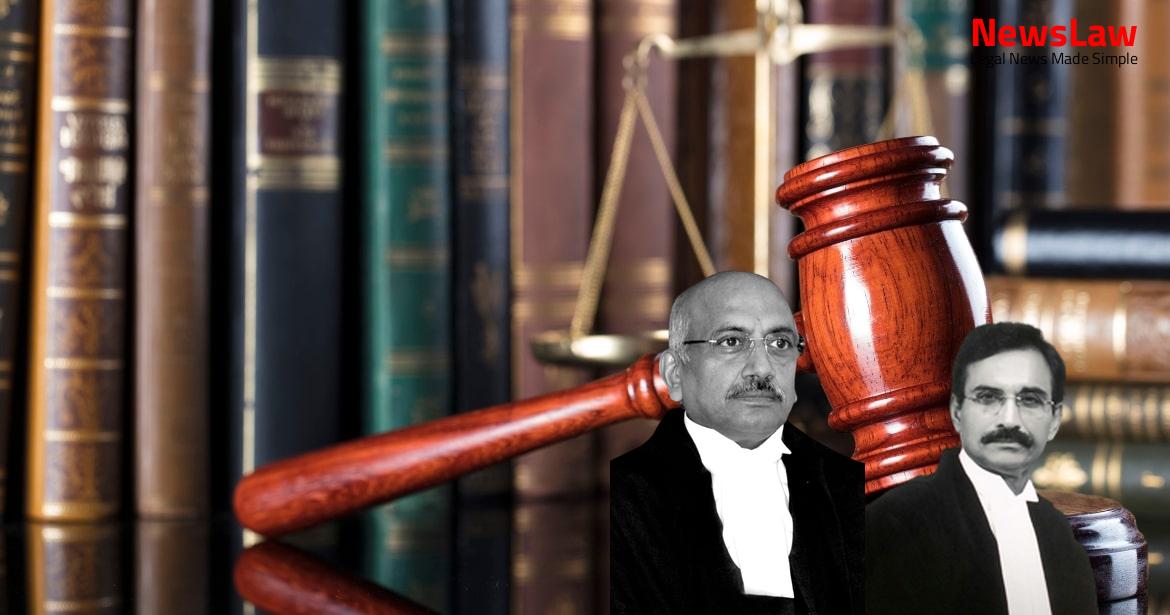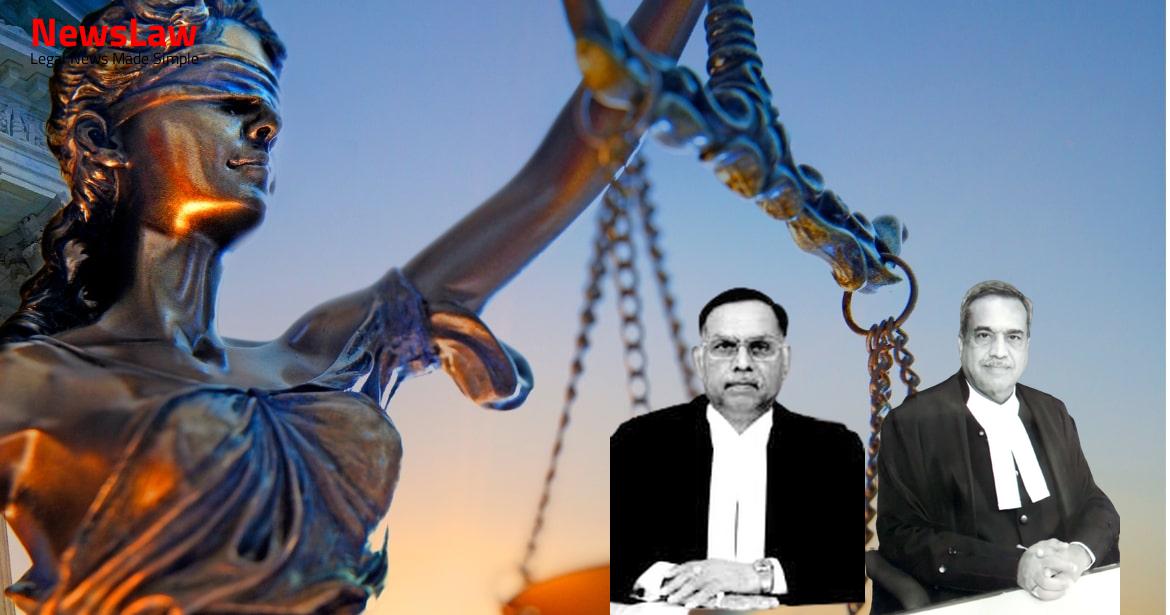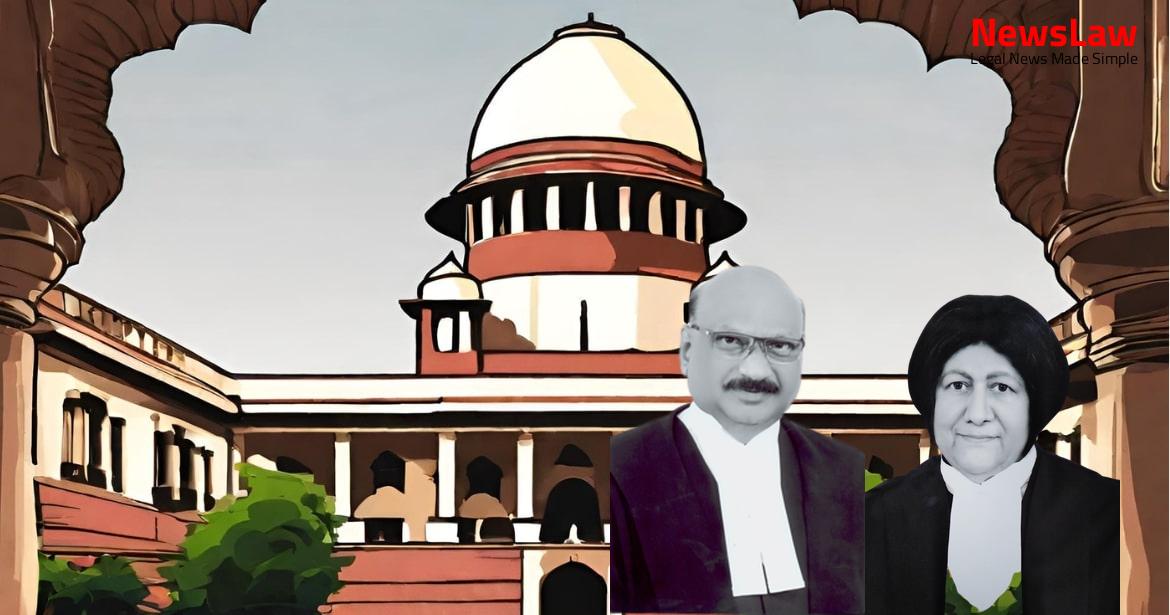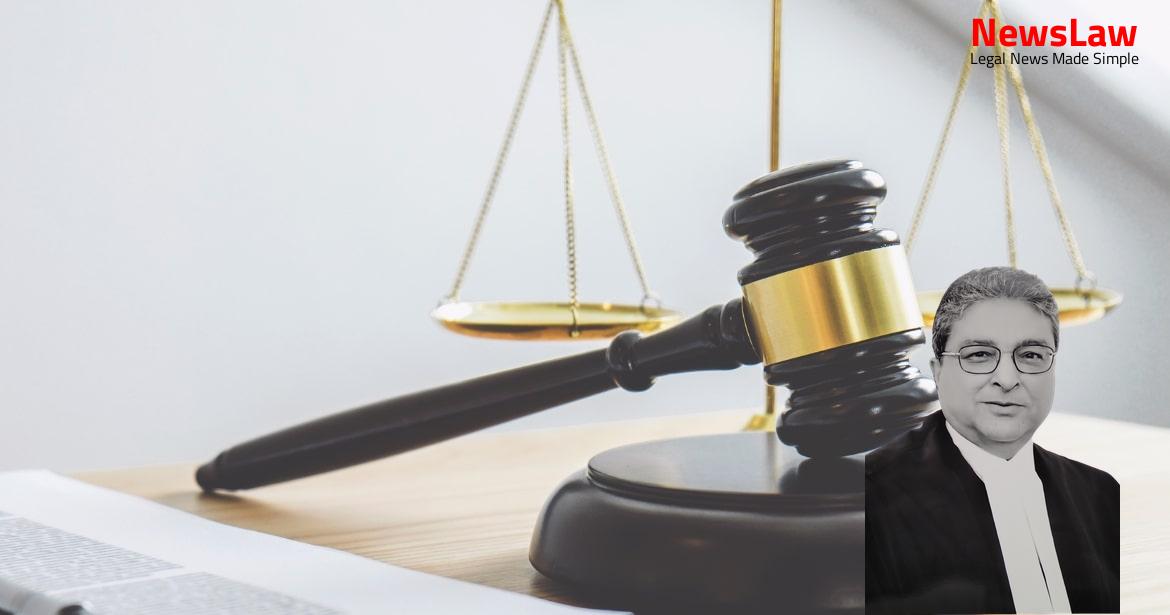In a significant legal battle, the case involving the dismissal of a Sepoy from the Indian Army has reached its conclusion. The Supreme Court’s ruling on the acquittal of the accused brings to light the importance of fair trial procedures and adherence to due process. This victory for the Sepoy signifies the triumph of justice in the face of challenges. The case reflects the complexities of legal proceedings and the critical need for upholding the principles of justice. With the Sepoy’s acquittal upheld, the case sets a precedent for fairness and integrity in legal proceedings.
Facts
- Lt. Col. Amarvir Singh initiated the proceedings for recording the summary of evidence against the Respondent.
- A Court of Inquiry was ordered to investigate the criminal force used against Subedar/Master Technical Satyendra Singh Yadav by the Respondent.
- Twelve witnesses were examined for the prosecution between 10.06.2011 and 15.06.2011.
- The Respondent declined to cross-examine the prosecution witnesses.
- The Respondent was charged with committing an offence under Section 326 of the Indian Penal Code by causing grievous hurt to Subedar/Master Technical Satyendra Singh Yadav.
- The Summary Court Martial proceedings were alleged to have non-compliance with the Army Act, 1950 and the Army Rules, 1954.
- The Tribunal found discrepancies in the recording of the summary of evidence, suggesting signatures may have been taken in advance.
- The Respondent voluntarily admitted to hitting the victim with a grass cutting tool without provocation.
- The victim suffered grievous injuries and had to undergo surgery for a fractured skull and internal bleeding in the brain.
- The order of dismissal of the Respondent was set aside by the Armed Forces Tribunal.
- The Respondent was enrolled in the Indian Army as Sepoy in Unit 981 AD Regiment Workshop.
- The Summary Court Martial found the respondent guilty and imposed the sentence of dismissal from service.
- The Tribunal determined that the respondent was not given the opportunity as per Rules 179 and 180 of the Rules.
- The Tribunal noted that the procedure outlined in Rules 115 and 116 regarding recording the plea of guilt was not followed.
- The Tribunal ruled in favor of the respondent, concluding that the penalty of dismissal was imposed with a pre-determined mind and without following due process.
- The Tribunal agreed with the respondent that the Summary Court Martial was conducted hastily.
- There was no blood on the weapon and the prosecution couldn’t prove any fingerprints of the respondent on the weapon.
- The Tribunal found an irreconcilable inconsistency between the medical evidence and the oral testimonies of the witnesses.
Also Read: Case of Technical Equipment Officer Appointment Criteria Dispute
Analysis
- The Tribunal analyzed the evidence on record and found that the prosecution failed to establish the guilt of the Respondent.
- Signatures of the Respondent were obtained before filling in the depositions of the witnesses later, indicating lack of procedural adherence.
- The entire Summary Court Martial was conducted hastily, raising concerns about the fairness of the proceedings.
- The Presiding Officer’s signatures were found in inconsistent locations on the documents, casting doubt on the authenticity of the records.
- There were discrepancies in the recording of additional evidence, with gaps between depositions and signatures of Major Hemant Juneja and the Respondent.
- The Tribunal considered conflicting medical evidence, lack of scientific evidence like fingerprints on the weapon, and absence of blood on the weapon, which were crucial in determining the Respondent’s guilt.
- An alternative view that the Respondent was guilty could be derived from the oral evidence presented, but the Tribunal chose to prefer the view leading to acquittal.
- The Respondent was not given an opportunity to cross-examine the witnesses, highlighting a violation of the fair trial procedure.
- Based on the principles that judgments of acquittal should not be disturbed without substantial reasons and that the view leading to acquittal should be preferred in case of doubt, the Tribunal’s judgment was upheld.
- The Appellate Court must give proper weight to the findings of the trial Court.
- If two reasonable views exist – one leading to acquittal and the other to conviction, the High Courts/Appellate Courts should rule in favor of the accused.
- Reasons to discard a judgment of acquittal include when the trial Court’s conclusion on facts is clearly wrong, based on an erroneous view of law, likely to result in a grave miscarriage of justice, illegal approach in dealing with evidence, manifestly unjust and unreasonable, ignoring or misreading material evidence or documents like dying declarations or reports from experts.
- The list provided is illustrative and not exhaustive.
- Violation of Rules 179 and 180 of the Rules
- Respondent deprived of opportunity to defend himself
Also Read: Supreme Court Judgement on Transfer of Mining Environmental Clearances
Decision
- The judgment of the Tribunal is upheld and the Appeal is dismissed.
Also Read: House Breaking by Night: Verdict Reversal and Reinstatement of Military Personnel
Case Title: UNION OF INDIA Vs. SEPOY PRAVAT KUMAR BEHURIA
Case Number: Crl.A. No.-001627 / 2019



